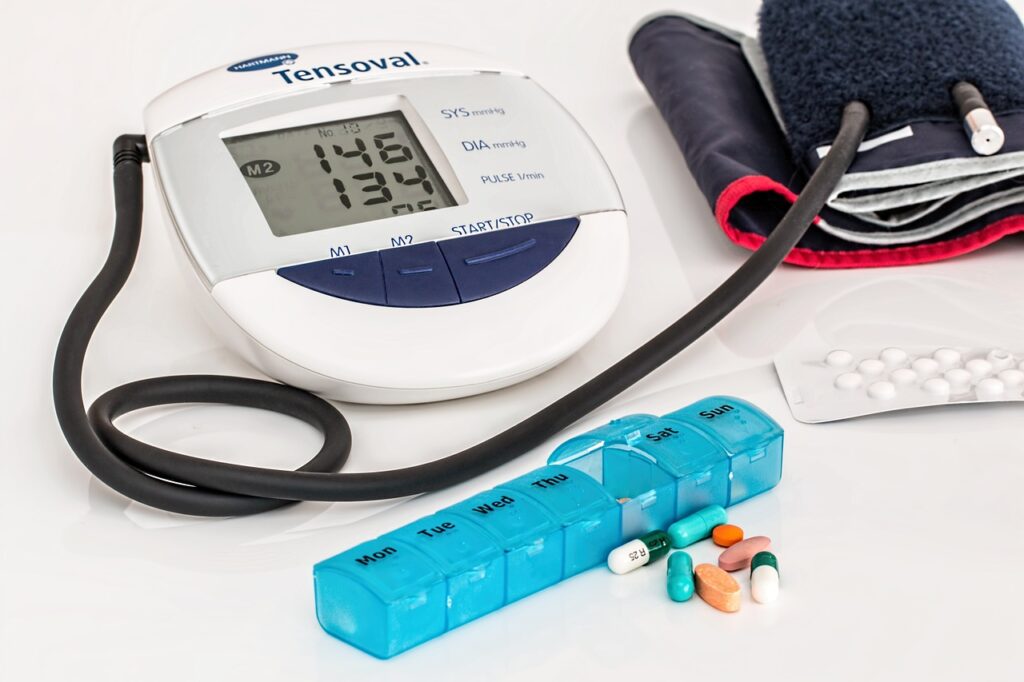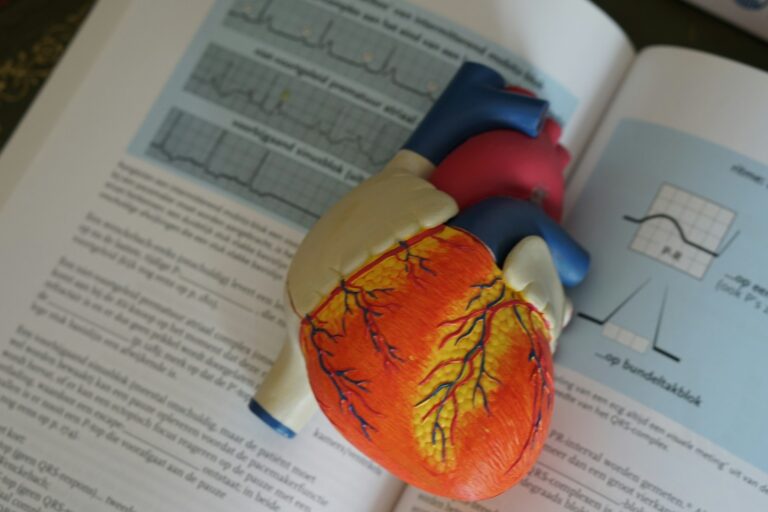Chronic stress is often overlooked as a risk factor for heart disease, but its impact on heart health is profound. From raising blood pressure to increasing inflammation, stress plays a critical role in the development of cardiovascular problems. Understanding the connection between stress and heart health—and learning how to manage stress effectively—can help protect your heart and improve your overall well-being.
In this article, we’ll explore the link between stress and heart health, how stress affects the heart, and proven techniques to manage stress for a healthier heart.
How Stress Affects Heart Health
Stress activates the body’s fight-or-flight response, releasing hormones like adrenaline and cortisol. While this is useful in short bursts, chronic stress can have detrimental effects on the cardiovascular system.
1. Elevated Blood Pressure
- Chronic stress can lead to high blood pressure (hypertension), a major risk factor for heart disease.
- The constant release of stress hormones causes blood vessels to constrict, making the heart work harder. Over time, this strain on the cardiovascular system can increase the risk of heart attack and stroke.
2. Increased Inflammation
- Stress triggers the inflammatory response in the body, which can damage blood vessels and contribute to plaque buildup in the arteries.
- This chronic inflammation is closely linked to atherosclerosis, a condition that narrows the arteries and increases the risk of a heart attack.
3. Unhealthy Coping Mechanisms
- People under stress may turn to unhealthy behaviors like smoking, overeating, or drinking alcohol, all of which negatively impact heart health.
- Lack of physical activity due to stress also contributes to weight gain, which further increases the risk of heart disease.
4. Increased Heart Rate
- When you’re stressed, your heart rate increases, forcing your heart to work harder. Over time, this can lead to arrhythmias (irregular heartbeats) or heart failure.

Effective Stress Management Techniques for Heart Health
Managing stress is essential for maintaining heart health. Here are some proven techniques to reduce stress and protect your cardiovascular system:
1. Regular Physical Activity
✅ Why It Helps:
Exercise is one of the best ways to reduce stress and improve heart health. It promotes the release of endorphins, which help boost mood and combat anxiety.
🔥 How to Do It:
- Aim for at least 150 minutes of moderate exercise per week, such as brisk walking, cycling, or swimming.
- Strength training two to three times a week can also help reduce stress and support cardiovascular health.
2. Meditation and Mindfulness
✅ Why It Helps:
Mindfulness meditation has been shown to lower cortisol levels, reduce blood pressure, and improve emotional well-being. It helps you stay present and reduce anxiety, which can have lasting positive effects on your heart.
🔥 How to Do It:
- Practice deep breathing exercises or guided meditation for 10-20 minutes each day.
- Apps like Headspace and Calm offer easy-to-follow meditation sessions.
3. Yoga and Stretching
✅ Why It Helps:
Yoga combines movement, breathwork, and mindfulness, all of which reduce stress and improve cardiovascular function. Studies show that regular yoga practice can help lower blood pressure and reduce the risk of heart disease.
🔥 How to Do It:
- Attend a local yoga class or follow online videos.
- Incorporate gentle stretching into your daily routine to improve flexibility and promote relaxation.
4. Social Support and Connection
✅ Why It Helps:
Spending time with loved ones or talking to friends can help lower stress levels and promote a sense of well-being. Strong social support is linked to better heart health and reduced stress.
🔥 How to Do It:
- Make time for regular social activities with family and friends.
- Consider joining a support group if you’re dealing with chronic stress or health issues.
5. Adequate Sleep
✅ Why It Helps:
Sleep is crucial for stress recovery. Poor sleep increases stress hormones and negatively impacts heart health. A good night’s sleep supports emotional regulation and allows your heart to repair and recover.
🔥 How to Do It:
- Aim for 7-9 hours of sleep each night.
- Follow a consistent sleep schedule and create a relaxing bedtime routine.
6. Healthy Diet
✅ Why It Helps:
A balanced diet rich in whole grains, fruits, vegetables, lean proteins, and healthy fats can help manage stress and protect the heart. Nutrient-dense foods reduce inflammation and support overall heart function.
🔥 How to Do It:
- Reduce processed foods and added sugars, which can exacerbate stress and inflammation.
- Include omega-3 fatty acids (found in fatty fish, walnuts, and flaxseeds) to support heart health.
7. Professional Support
✅ Why It Helps:
If you’re struggling with chronic stress, seeking professional help can make a significant difference. Therapy or counseling can help you develop healthier coping strategies and address underlying causes of stress.
🔥 How to Do It:
- Cognitive-behavioral therapy (CBT) is particularly effective in managing stress.
- Consider seeing a therapist or counselor if stress is interfering with your life.
Final Thoughts
Chronic stress is a major contributor to heart disease, but with the right management techniques, you can protect your cardiovascular health and reduce stress levels. Incorporating physical activity, mindfulness practices, healthy eating, and seeking support are all effective strategies for reducing stress and promoting a healthy heart.
📌 Take Action Today: Start by incorporating small changes to manage stress, such as taking a walk or practicing deep breathing. Every little effort helps protect your heart!
Would you like additional resources or a guide on specific stress-reducing supplements? 🚀
Remember, you don’t need to overhaul your diet overnight. Start with small, manageable changes—like swapping white bread for whole grain or adding an extra serving of veggies to your dinner plate.
Complement your heart-healthy diet with supplements like CardioForLife Powder to fill in any nutritional gaps and support overall cardiovascular health.





